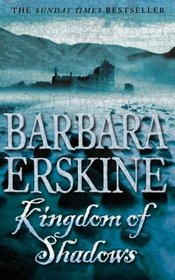Helpful Score: 1
There seems to be an irony in that Isobel - who belonged to a time when women were expected to do nothing more than enter a convent or marry and provide heirs - never stopped fighting to be free of her loveless marriage, while Clare - a 20th century woman who belongs to a time when women are much more empowered - submits meekly to her selfish husband (except for, of course, the issue of selling Duncairn).
Also, in the hero department, Isobel's lover, Robert of Carrick -later to become King of Scots - is much more likable than Clare's Neil. Both husbands (John Comyn - Lord Buchan - and Paul Royland) were despicable.
If only for the beautifully told story of Isobel of Fife,
Also, in the hero department, Isobel's lover, Robert of Carrick -later to become King of Scots - is much more likable than Clare's Neil. Both husbands (John Comyn - Lord Buchan - and Paul Royland) were despicable.
If only for the beautifully told story of Isobel of Fife,




